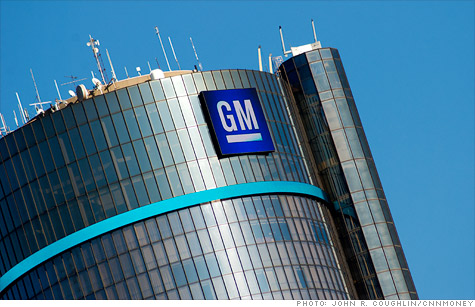Search News

GM will cut its pension obligations by $26 billion by shifting its white-collar retirees to either a lump sum payment or an annuity contract.
NEW YORK (CNNMoney) -- General Motors is moving to limit its liability from its underfunded pension funds by offering its white-collar retirees either a lump-sum payment or an annuity.
The automaker said the move will result in a $26 billion reduction of GM's U.S. salaried pension obligation.
The lump-sum payments will only be offered to the 42,000 retirees who left the company between Oct. 1, 1997 and before Dec. 1, 2011.
The choice to take the lump-sum payment will be voluntary. But for those who don't choose the option, GM (GM, Fortune 500) will purchase a group annuity contract from Prudential Insurance (PRU, Fortune 500) to cover their promised benefit payments.
The 76,000 retirees who left the company before Oct. 1, 1997 will not have the option of a lump-sum payment, but they will be covered by an annuity contract as well.
While the move will significantly limit the liability the company faces, it will come at a cost.
GM will spend between $3.5 billion to $4.5 billion to help cover the purchase of the group annuity contract, and take a special charge against its earnings of between $2.5 billion to $3.5 billion later this year. Its annual earnings are also likely to fall by about $200 million a year due to a decrease in pension income.
Rival Ford Motor (F, Fortune 500) already has offered its salaried retirees a lump-sum payment option as well. That offer is in the process of being considered by its retirees.
Those salaried workers who retired starting Dec. 1 of last year were not eligible for a traditional pension plan, which pays workers a certain defined benefit every month they or their spouse survives. Instead, they only participated in a 401(k) plan, also known as a defined-contribution plan.
GM's most recent annual report shows that its U.S. pension plans are underfunded by $13.3 billion as of last Dec. 31. The report does not breakdown how much of that funding gap applies to its plans covering hourly workers represented by the United Auto Workers union and how much is from the salaried pension plan.
GM could not extend this change in pensions to its greater number of hourly retirees without reaching an agreement with the UAW. ![]()